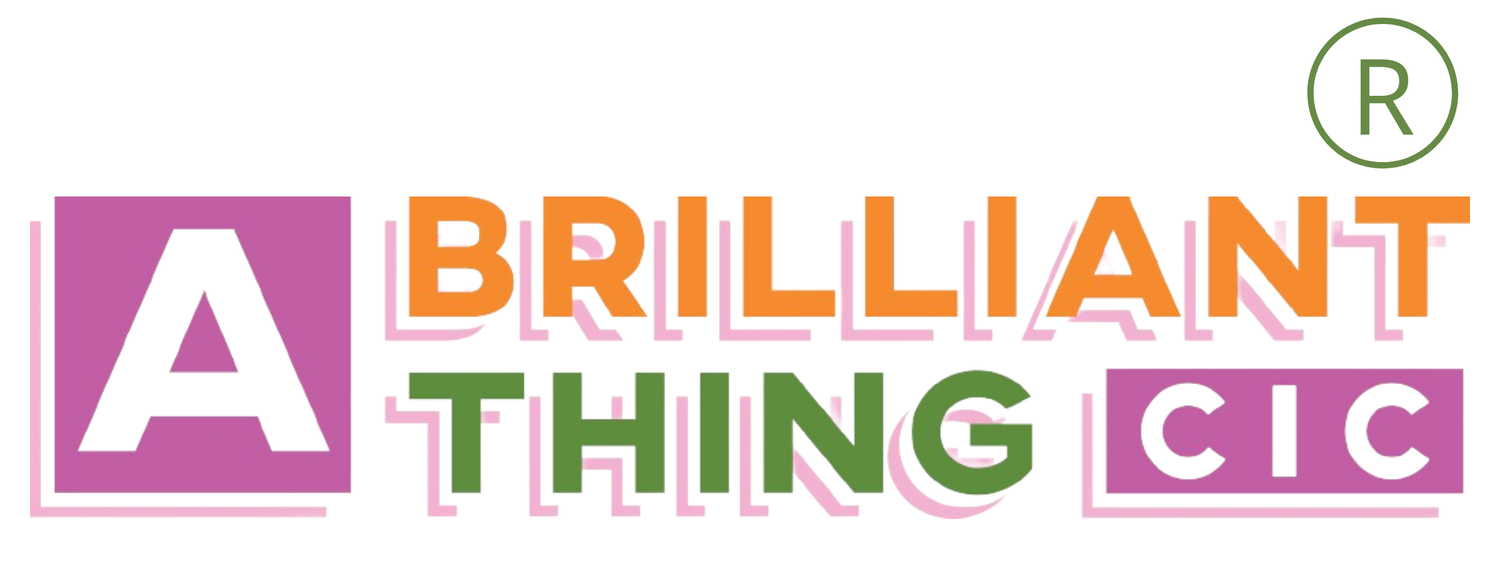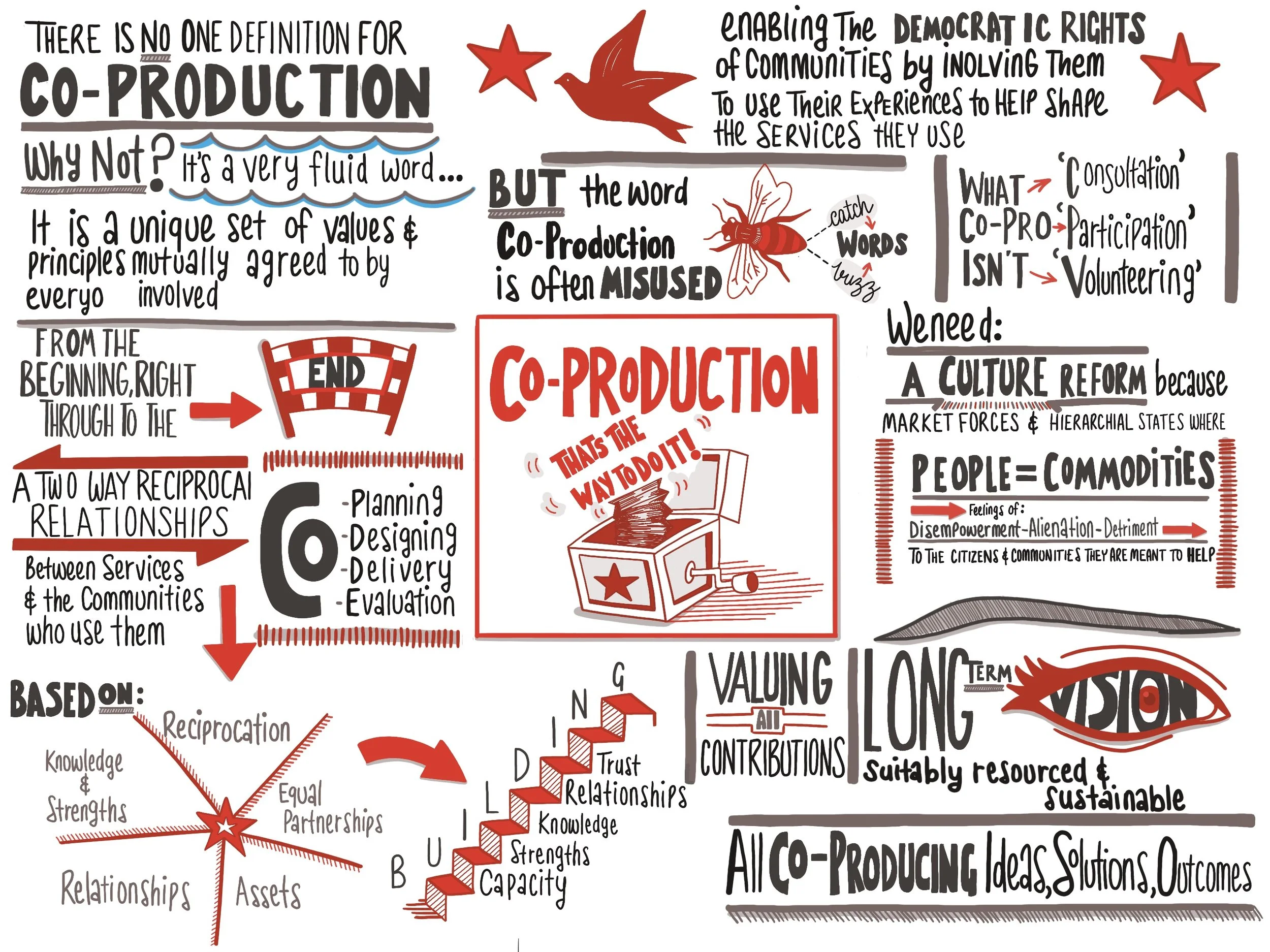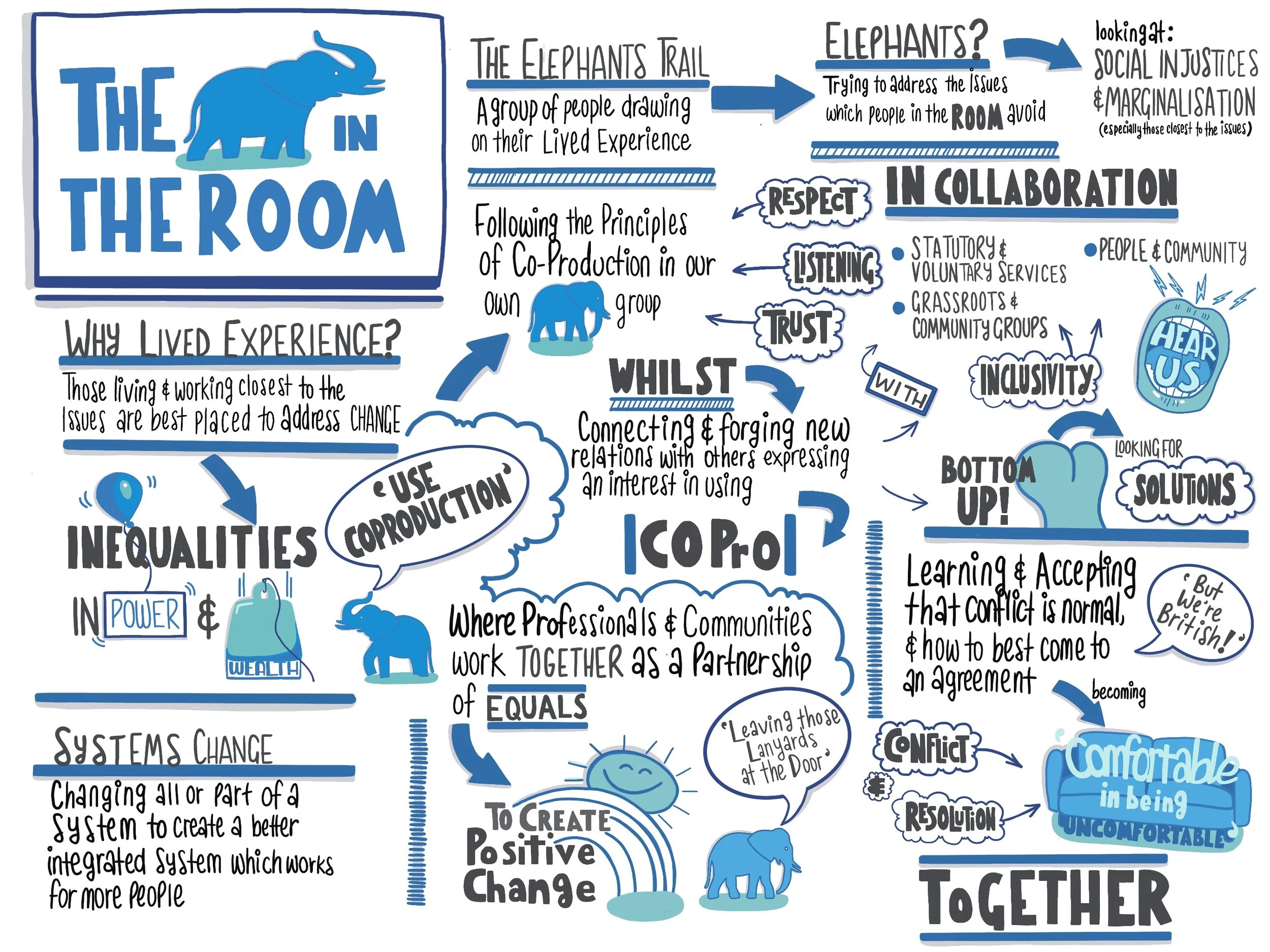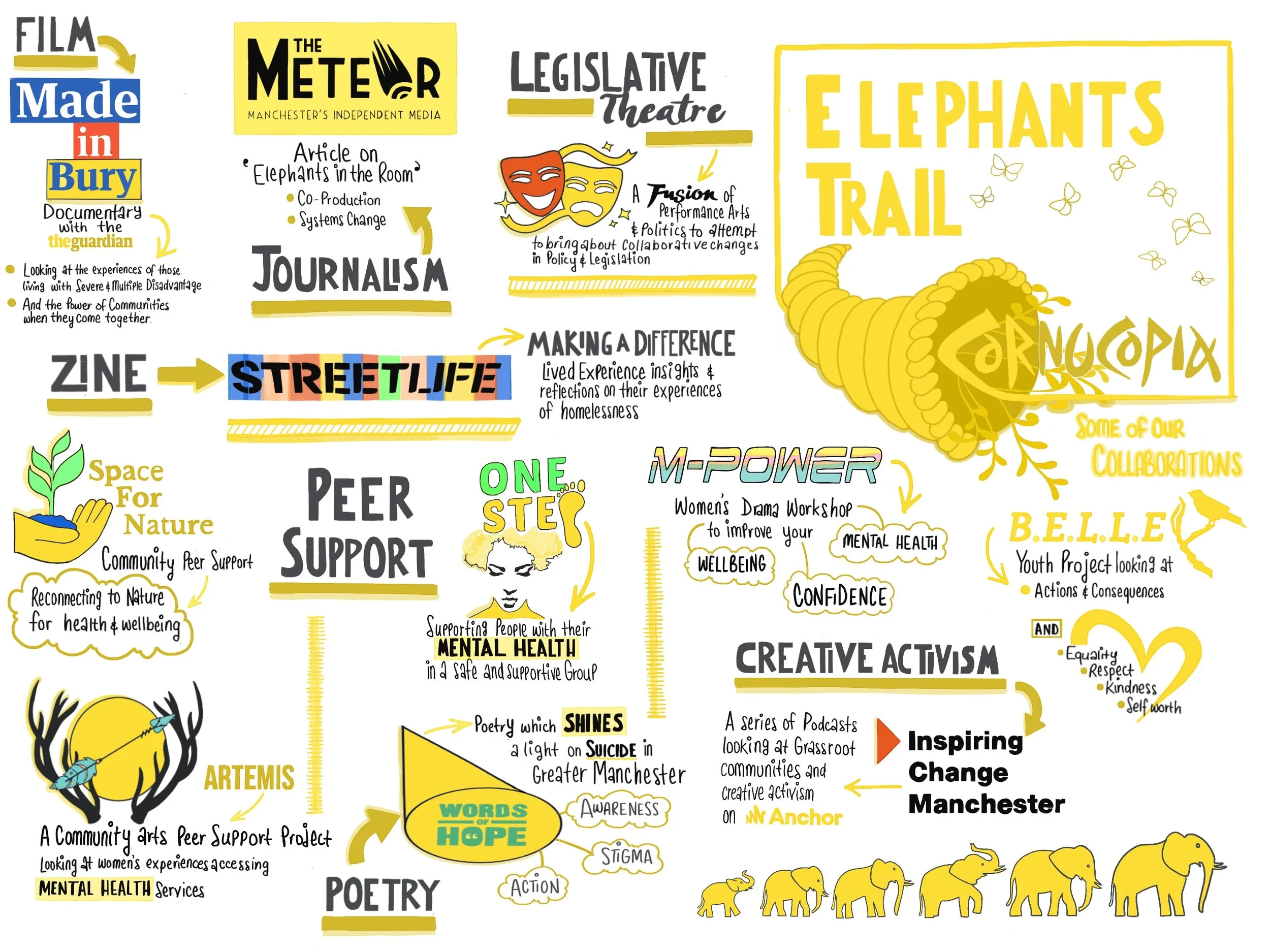Coproduction & Creative Work Environments
Guest blog by Selva Mustava
Showcasing creative initiatives, practices, and approaches that foster a culture of innovation, ideation, and out-of-the-box thinking.
The Elephants Trail second phase ran from January 2020 – July 2023, and we’re preparing an event to showcase ‘the captured learning’. So, I’ve been putting a lot of thought into what we achieved, which fits in very well with this Blog.
It was an innovative project, a social experiment, which took a group of persons (11 originally) with varied lived experience and gave them the freedom to come up with support projects which we thought our local area of Bury needed. And to give them their due, Lankelly Chase and the GMCA didn’t interfere. But (there’s always a but!) the caveat was we needed to use the method of Coproduction as the basis of our work.
None of us knew what Coproduction was or had any experience of using it.
Coproduction by Selva Mustafa
I would say at the end of 3 years, as a whole we had limited success, but as pockets (subgroups) we had much better outcomes.
If only we’d known that Coproduction works perfectly well this way, but that’s another story. I just wanted to give a little background of what we were about, and that in those pockets we were massively creative and supportive of one another.
I stuttered a little when I read ‘well researched’ as part of the guidelines because we don’t work with data, references or KPI’s.
Then I remembered this isn’t a report, but a Blog, so I feel fully justified in using qualitative date – real experiences, in real time.
The Elephant in the Room by Selva Mustafa
What added extra interest was the event of COVID-19 and lockdown. We became well acquainted with ZOOM and very quickly. With a focus on people how would we create and build relationships and support communities through closed doors? Somehow, we did manage that on an online world. We used a strengths-based approach for ourselves and utilised the different skill sets we brought to the Elephants Trail.
Coproduction involving statutory, voluntary services and grassroot groups is incredibly hard.
Getting past the trust issues, the feelings of competition, and the mindset around ‘lived experience’ meant we had to keep plugging away, not giving up or giving in to opinion. It made us stronger and more determined to see more person centredness in support services and communities. We were honest about what we thought, but hopefully respectful and I think that’s one of the things that kept us innovative. If we couldn’t find a solution one way, we’d try another, and another. We used creativity to try and ensure we were being as inclusive as possible, thinking about culture, diversity and the language we used to get our message across. Communities were the heart of our thinking and supporting them to get their voices, thoughts and needs heard.
I won’t go on about everything we did in a long list because I have produced some visual recordings which I’ll add as my ‘showcase’.
Graphic recording is just one skill I developed through my time as an ‘Elephant’.
The Elephants Trail by Selva Mustafa
The Elephants Trail also supported me to come out of my comfort zone.
I’m a ‘background’ person, I don’t like public speaking, but I did it not once but several times, before large numbers of people, including people like the Mayors of Manchester and Liverpool – eeek!!
What the Elephants Trail has done is build my confidence and I know I am capable of working hard, trying new things, I’ve got my voice heard. The Elephants Trail may be no more, but our legacy continues in the new strands of work we’re involved in. Job not done but getting there.............
What drives us? by Selva Mustafa





